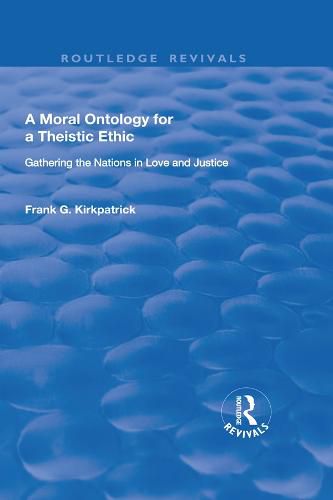Readings Newsletter
Become a Readings Member to make your shopping experience even easier.
Sign in or sign up for free!
You’re not far away from qualifying for FREE standard shipping within Australia
You’ve qualified for FREE standard shipping within Australia
The cart is loading…






This title was first published in 2003. This book develops a moral ontology for a theistic ethic that engages the work of contemporary moral and political philosophers, and reaffirms the relevance of a theistic tradition of God’s relation to the world reflected in the fundamental teachings of Judaism, Christianity and Islam. Drawing on recent thought in the non-religious fields of psychology and political and moral philosophy, which build around the concept of human flourishing in community, Kirkpatrick argues that a theistic ethic need not be the captive of parochial or sectarian theological camps. He proposes a common or universal ethic that transcends the fashionable ethnocentric ‘incommensurate differences’ in morality alleged by many post-modern deconstructionists. In the wake of ethnic religious strife post September 11th 2001, this book argues for a common morality built on the inclusivity of love, community, and justice that can transcend sectarian and parochial boundaries.
$9.00 standard shipping within Australia
FREE standard shipping within Australia for orders over $100.00
Express & International shipping calculated at checkout
This title was first published in 2003. This book develops a moral ontology for a theistic ethic that engages the work of contemporary moral and political philosophers, and reaffirms the relevance of a theistic tradition of God’s relation to the world reflected in the fundamental teachings of Judaism, Christianity and Islam. Drawing on recent thought in the non-religious fields of psychology and political and moral philosophy, which build around the concept of human flourishing in community, Kirkpatrick argues that a theistic ethic need not be the captive of parochial or sectarian theological camps. He proposes a common or universal ethic that transcends the fashionable ethnocentric ‘incommensurate differences’ in morality alleged by many post-modern deconstructionists. In the wake of ethnic religious strife post September 11th 2001, this book argues for a common morality built on the inclusivity of love, community, and justice that can transcend sectarian and parochial boundaries.